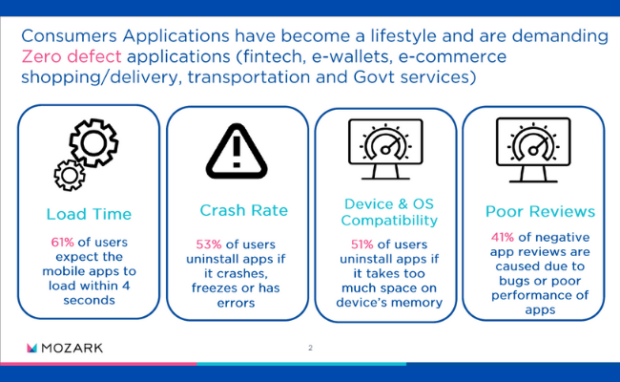PH government warns cybercriminals are using popular chat apps
The Cybercrime Investigation and Coordinating Center warns the public that online criminals now use the Viber chat program to scam and harm others. On September 26, 2023 ar, around 10 AM, the CICC detected failed attempts to send video and file transfers. Thanks to its new Consumer Application Monitoring Systems, it spotted the issue immediately.
The Philippines has been advancing its digitalization efforts under President Bongbong Marcos. The government adopts the latest products and services to ensure Filipinos can fully enjoy their transformative potential. However, its leaders remain vigilant to mitigate potential risks from these technologies. Fortunately, it has been achieving this goal.
This article will discuss the latest advisory regarding cybercriminals on the Viber app. Then, I will explain how the Philippine government’s CAMS protects citizens from growing cyber threats.
How did the CICC detect Viber cybercriminals?
The Cybercrime Investigation and Coordinating Center released an advisory yesterday after CAMs detected failed attempts to send video and file transfers. Here’s part of that public announcement:
“We have detected continuous failed attempts to send video and file transfers using the Viber system in multiple sites covered by the CAMS platform both domestically and internationally since 10 AM today while messaging and voice calls have been successful through the Viber platform.”
The PH Cybercrime agency shared that advisory a couple of weeks after formally launching the Consumer Application Monitoring Systems to monitor online applications to ensure consumer protection.
Executive Director Alexander K. Ramos said the detection of the use of Viber proves CAMS is an effective platform. “CAMS is working well in detecting problems and in protecting consumers,” he said.
What is CAMS?

Photo Credits: CICC
The Consumer Application Monitoring Systems are a set of hardware and software applications designed to spot issues with government digital services. Here are the issues found by the CICC:
- Load time: 61% of users expect the mobile apps to load within four seconds.
- Crash rate: 53% of users uninstall apps if they crash, freeze, or encounter errors.
- Poor reviews: 41% of negative app reviews are due to bugs or poor performance of apps.
- Device & OS compatibility: 51% of users uninstall apps if they occupy too much space on their device storage.
These are why Department of Information and Communications Technology Secretary Ivan John Uy launched CAMS. It follows the “Zero Defects” principle popularized by American philosopher Philip Crosby.
ZD ensures businesses make an impact and everyone “gets the same message in the same way.” It empowers workers to reject products and processes that do not meet standards.
As the name suggests, Zero Defects promotes personal accountability to ensure goods are free from defects. CAMS applies this principle with the following tools:
You may also like: Tinder launches quiz feature
- AI-powered vision enables CAMS to “see” errors and automate event detection.
- Moreover, it uses robots for multi-stage user journey automation. It could follow the steps to accessing apps by tapping the correct sequence of buttons without human intervention.
- CAMS autonomous kits allow the platform to gather location-based data. Consequently, it could highlight areas that may require further assistance.
CICC Executive Director Ramos explained CAMS aims to help Filipinos understand the options the government provides. “It’s not a warning, but rather it’s a tool. Our objective is to educate the public.”
“People should understand we are not here to put down or to put up anyone. And, you know, we are here for the public to understand that there are options,” the Executive Director explained.
How to report cybercriminals in the Philippines

Photo Credit: cebucity.news
You may report suspected cybercrimes through the CICC main hotline at 1326. Also, you may reach the Inter-Agency Response Center (I-ARC) at 0966 9765971 (Globe), 09477147105 (Smart), and 09914814225 (DITO).
You can send concerns to the CICC Facebook page, powered by its new CYRI chatbot. However, the CICC complaint process checks the accuracy and completeness of information in reports. Ensure you include the following information:
You may also like: FB cracks down on harmful real networks
- Victim’s Name, Mobile Number, Email address, Address of residence
- Specific details of the complaint
- Digital Evidence (image file format)
- Any other relevant information that is necessary to support the complaint
Conclusion
The Cybercrime Investigation and Coordinating Center warned the public that cybercriminals are now using Viber. Fortunately, the Philippine government found a solution from Taiwan.
It partnered with online risk management firm Gogolook to combat online scams. “This collaboration is a momentous occasion that shows a joint front against scammers to help stay ahead of the evolving methods of scammers and fraudsters worldwide,” the CICC head said.
“With help from CICC, we can build a stronger anti-fraud network, which already includes various police and government agencies,” Gogolook COO Manwoo Joo added. Learn more about the latest digital tips and trends at Inquirer Tech.
